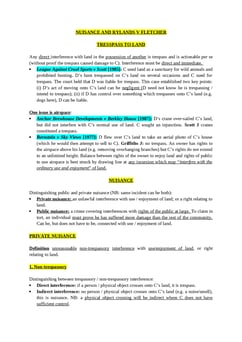Kent v Griffiths (3) [2001] QB 36; [2000] 2 WLR 1158; [2000] 2 All ER 474
Judgement for the case Kent v Griffiths (3)
KEY POINTS
-
In emergency medical services, such as ambulance services, a duty of care is established for those needing medical attention.
In the unfortunate event of a claimant experiencing a severe asthma attack, the duty of care extends to ensuring prompt and effective response by emergency services.
-
When a doctor deems it necessary to seek urgent medical assistance by contacting the emergency services, such as by dialing 9951, an agreement is formed between the healthcare professional and the ambulance service.
This agreement signifies the commitment to dispatch an ambulance promptly to address the medical emergency.
However, if the ambulance fails to arrive within a reasonable time frame, questions of negligence may arise.
In instances where there is no satisfactory explanation for the delay in the arrival of the ambulance, the consequences can be severe.
The claimant, already suffering from an asthma attack, may experience a deterioration in their condition leading to respiratory arrest.
The question then becomes whether the ambulance service can be liable for negligence, considering the potentially life-threatening consequences of the delayed response.
FACTS
-
In 1991, Tracey Kent (“Claimant”) experienced an asthma attack at home.
At precisely 4:25 pm, her doctor urgently contacted 999, requesting an ambulance for immediate transportation to the hospital.
The ambulance did not arrive until 5:05 pm despite two subsequent phone calls.
Shortly before reaching the hospital, the Claimant suffered a respiratory arrest, resulting in brain damage.
Significantly, an ambulance crew member falsified the record, misrepresenting the time of arrival at the claimant's home as 4:47 pm.
-
The judge made critical findings in a legal action for damages for personal injury against the ambulance service.
The judge concluded that the ambulance had failed to reach the Claimant's home within a reasonable time, with no satisfactory explanation for the delay.
Furthermore, the judge determined that if the ambulance had arrived within a reasonable time, there was a high probability that the respiratory arrest could have been averted.
The judge held that, in these circumstances, the ambulance service had a duty of care toward the Claimant, which it breached.
As a result, the Claimant's lawsuit for damages was successful.
JUDGEMENT
-
In dismissing the ambulance service's appeal, the court held that a public law duty existed to provide an ambulance for the Claimant.
The ambulance service's discretion had no rational alternative based on the circumstances.
The court rejected treating the ambulance service as mere volunteers and emphasised its role within the health service.
The foreseeability of further harm to the claimant due to delayed arrival and available resources made it unjustifiable not to provide an ambulance promptly.
Liability was affirmed concerning the delayed response, supporting Turner J's decision.
COMMENTARY
-
This case highlights the duty of prompt care in emergency medical services, focusing on a case involving Tracey Kent's asthma attack in 1991.
Despite a doctor's urgent call for an ambulance, the delayed response led to respiratory arrest and brain damage.
Falsification of records further shows negligence.
In the legal proceedings, the judge determined the ambulance service breached its duty by not arriving promptly and lacking a satisfactory explanation.
The foreseeability of harm and available resources made the delay unjustifiable. The court dismissed the ambulance service's appeal, affirming a public law duty and supporting Turner J's decision on liability.
ORIGINAL ANALYSIS
Plaintiff called an ambulance that arrived after long delay and suffered brain damage which would not have occurred if it had arrived at reasonable time.
-
CA upheld hospital’s liability for negligence in causing Plaintiff’s brain damage.
CA said that there WAS reasonably foreseeable damage to Plaintiff if there was a delay (her doctor had called the ambulance and explained the problem), there was proximity due to the arrangement that the ambulance was to take her to hospital, and it was just, fair and reasonable to impose a duty of care, since no justification for the delay was produced.
Lord Woolf
Even if there were no duty of care (which there is) the liability where a PA worsens/causes the damage, as set out in Capital & Counties plc, would apply (since the assurance that an ambulance would come deterred P’s doctor from driving her directly).
However there is a duty of care: He says that the statutory powers confer a in this case, unlike in Capital & Counties plc because the powers to use an ambulance cannot be used in any way other than to transport people.
This is unconvincing: there is no more need for discretion in the case of a fire engine than in the case of an ambulance: Lord Woolf would be better off either saying that the ambulance were liable through their causing additional harm OR saying that Capital & Counties plc in terms of portraying PAs as being under no obligation to help.
RELATED CASES
For Further Study on Kent v Griffiths (3)
Need instant answers? Our AI exam tutor is here to help.
Ask questions 🙋 Get answers 📔 It's simple 👁️👄👁️
Our AI is educated by the highest scoring students across all subjects and schools. Join hundreds of your peers today.
Get StartedSimilar Cases
Related Product Samples
These product samples contain the same concepts we cover in this case.
| Tort Law | Actionable Damage Notes (19 pages) |

 Since 2010, Oxbridge Notes has been a trusted education marketplace, supplying high-quality materials from top achievers at universities like Oxford, Cambridge, LSE, Harvard, and Yale.
Since 2010, Oxbridge Notes has been a trusted education marketplace, supplying high-quality materials from top achievers at universities like Oxford, Cambridge, LSE, Harvard, and Yale.